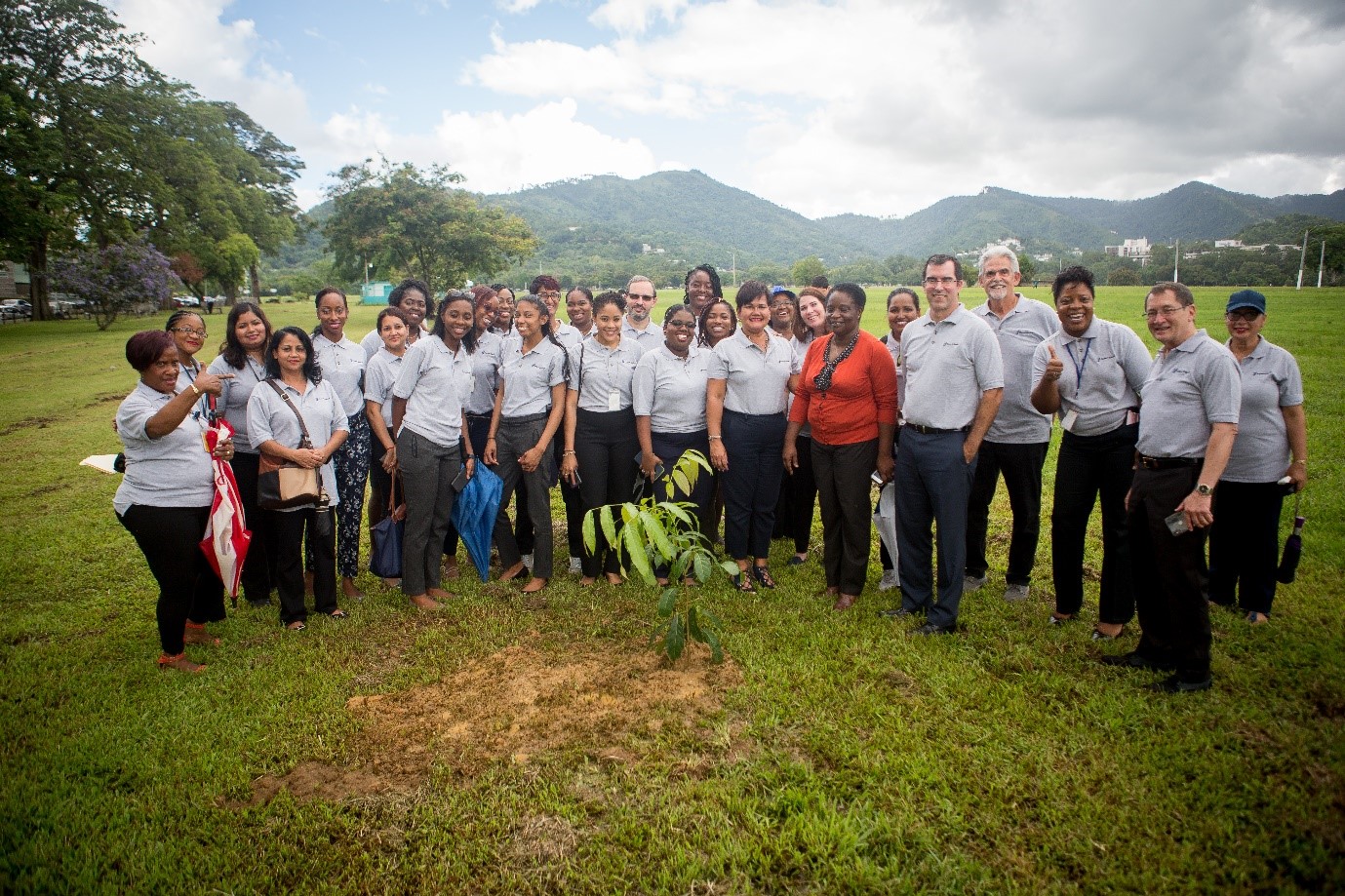“Guava season” is often used to describe a period of economic hardship. As someone who grew up in the rural countryside and spent many an august holiday raiding my grandmother’s guava tree to make chow and “helping” my mother to make homemade guava jam, I have often felt that the term “guava season” unfairly maligned a delicious and versatile fruit. Then again, as we head into a time of significant economic change and uncertainty, perhaps the humble, overlooked guava is just the symbol we need to represent our renewed energy around economic diversification, food security, ingenuity and entrepreneurship.
Indeed, the agriculture industry attracted significant focus in the government’s 2020/2021 budget, with finance minister Colm Imbert announcing a $500 million Agriculture Stimulus Package, a 70% increase over the previous budget’s allocation. While some have expressed scepticism about whether this investment is sufficient, others remain hopeful.
Here are some legal and business issues to consider if you are thinking about getting into the agriculture industry.
Choice of Business Structure
Choosing the right structure is an important consideration for any business.
The simplest option is to operate as a “sole trader”. Under this structure, the farmer/owner and the business are essentially one and the same. This structure does not require much legal formality. However, its main drawback is “unlimited liability”, meaning that the farmer/owner is personally liable for all of the debts and liabilities of the business.
Another option is to incorporate a company. An incorporated company is a legal entity separate and distinct from the farmer/owner. Structuring a business in this way has advantages, including “limited liability” for the farmer/owner. However, it also comes with risks and obligations. The Companies Act requires companies to comply with formal record keeping and reporting requirements and imposes sanctions for non-compliance. Incorporating a company may or may not be the right choice for you. It is important to properly consider and weigh the advantages and disadvantages and, if you do decide to incorporate, to comply with all of your legal obligations.
An alternative that may be worth considering is an agricultural co-operative. A co-operative society is an association of individuals who have voluntarily joined together to achieve common economic, social and/or cultural objectives through the formation of a jointly owned and democratically controlled enterprise. Co-operatives must be registered under the Co-operative Societies Act. There are many agricultural co-operatives and farmers’ associations in Trinidad and Tobago including the Pineapple Growers Association and the Moruga Hill Rice Multi-purpose Co-operative Society.
Registration
Individuals and companies involved in crop or livestock farming are required to register with the Ministry of Agriculture, Land and Fisheries. This is a legal requirement for anyone dealing with agricultural produce over 25kgs and is also a prerequisite in order to access incentives and other benefits offered to farmers by the government.
State Land Leases
Registered individuals, businesses and co-operatives can apply for a parcel of agricultural state land. However, deficiencies in the land registration and cadastral information systems have led to significant – in some cases decades long – delays in the issuance and renewals of state land leases. Formal leases are required in order to enable recipients to engage public agencies and institutions and to conduct business in relation to their parcel of land. The Minister of Finance has acknowledged these delays as one of the major challenges facing the agriculture industry. Hopefully moving forward there will be infrastructural improvements that speed up the process.
Environmental Liabilities
Farms are by their very nature likely to involve noise, smells, waste, pesticides and other potentially harmful chemicals. It is important for farmers to ensure that they do not run afoul of any environmental regulations issued by the Environmental Management Agency or otherwise cause damage to the environment.
Additionally, farmers may be liable to claims in private nuisance from their neighbours if their activities create an actionable nuisance. It is important for farmers to understand their obligations and potential liabilities in this regard. (For more information, see Cherie Gopie’s article in the 16th August 2020 edition of the Sunday Business Guardian).
Labour Obligations
Farms require labour. If you hire outside labour to work on a commercial farm, you become an employer and have all the duties and obligations that other employers do. These include providing employees with all wages and other benefits to which they are legally entitled. Additionally, since your employees may well be working with dangerous animals, pesticides, chemicals or equipment, it is important to understand and comply with all required health and safety obligations. Consider whether it makes sense for your business to obtain insurance to cover employment claims.
Risks and Insurance
Speaking of insurance, pests, praedial larceny, droughts, bush fires, floods and other natural disasters are all major challenges for farmers. Moreover, it is important to be aware of the fact that Trinidad and Tobago is susceptible to the adverse effects of climate change, heightening some of these risks. While the government does provide flood damage compensation to farmers, consider whether it is worthwhile to obtain private insurance to cover some of these risks.
Intellectual Property
Intellectual property is an often overlooked but important consideration in the agriculture industry.
Internationally, patents obtained by erstwhile agribusiness conglomerate Monsanto over genetically engineered plant varieties – which were used to prevent farmers from re-growing seeds harvested from their own crops without first paying Monsanto a patent licence fee – attracted significant controversy and debate. While that particular issue may not necessarily be a concern for local farmers, it illustrates the importance of understanding how to protect and leverage intellectual property rights.
Farmers can seek protection for any new and unique plant varieties that they develop as well as patents for new production tools or methods.
One particular area that may be of interest to local farmers is “geographical indication”. A geographical indication is a product that is protected as intellectual property based on characteristics directly related to its geographic origin. Geographical indication protection has typically been applied to wine and spirts – think Champagne, Cognac or Scotch Whiskey – and can be of significant value in the agriculture industry. It prevents products that do not originate from the protected geographic region from using the name of that region in their product name or branding. Locally, the Montserrat Cocoa Farmers Co-operative Society has registered “Trinidad Montserrat Hills Cocoa” as a geographical indication for raw cocoa beans and cocoa.
Over the years there have been calls for local farmers to seek protection for other unique local crops such as the Tableland Sugarloaf Pineapple, Moruga Hill Rice and Moruga Scorpion Pepper.
Food Safety
Some years ago, a local farmer caused quite a stir after he claimed to have injected 2000 avocadoes with pesticide in an (unsuccessful) attempt to discourage thieves. The poisoned avocadoes ended up on the market and national avocado sales plummeted as concerned shoppers avoided the fruit. Thankfully, no one suffered any illness or injury.
While this is an extreme example, farmers should be mindful that in the wake of Covid-19, hygiene and food safety is even more important than ever before. Farmers should ensure that they identify food safety risks and develop plans to address them.
Like with any business, the agriculture industry is fraught with both legal risks and opportunities. It is important for farmers to understand their legal rights, risks and obligations in order to ensure that any seeds that they plant ultimately bear fruit. This is “guava season” after all.
Disclaimer: This Document Provides General Guidance Only And Nothing In This Document Constitutes Legal Advice. Should You Require Specific Assistance, Please Contact Your Attorney-At-Law.
 Catherine Ramnarine is a Partner at M. Hamel-Smith & Co. She can be reached at catherine@trinidadlaw.com
Catherine Ramnarine is a Partner at M. Hamel-Smith & Co. She can be reached at catherine@trinidadlaw.com


